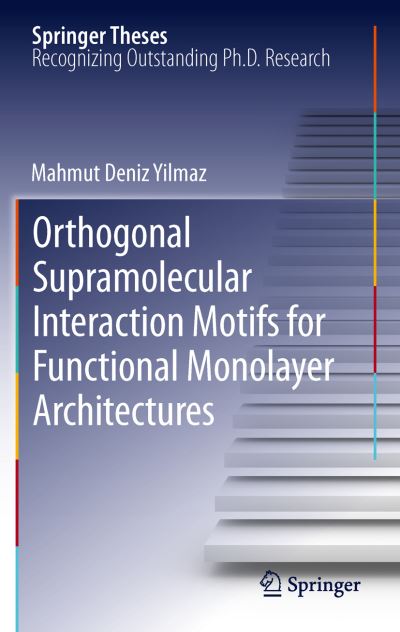
Deniz Yilmaz' thesis describes a combination of orthogonal supramolecular interactions for the design of functional monolayer architectures on surfaces, that can be used as chemical and biosensors in a wide range of applications. The term "orthogonal supramolecular interactions" refers to non-covalent interactions that do not influence each other's assembly properties. Orthogonal self-assembly thus allows extended control over the self-assembly process and promotes new materials properties. The first part of the thesis employs orthogonal host-guest and lanthanide-ligand coordination interaction motifs to create supramolecular luminescent monolayers. The second part of the thesis describes the fabrication of functional monolayers on silicon and gold substrates for applications in electronics.
The results illustrate the power of weak supramolecular interactions to direct the immobilization of functional systems on surfaces. The combination of host-guest and lanthanide-ligand coordination interaction motifs on surfaces demonstrates that hybrid, multifunctional supramolecular monolayers can be fabricated by integrating different non-covalent interactions in the same system. This combination opens up new avenues for the fabrication of complex hybrid organic-inorganic materials and stimuli-responsive surfaces. Their utility is demonstrated through applications of the functional interfaces to biosensing and nanotechnology.
| ISBN: | 9783642302565 |
| Publication date: | 7th June 2012 |
| Author: | Mahmut Deniz Yilmaz |
| Publisher: | Springer an imprint of Springer Berlin Heidelberg |
| Format: | Hardback |
| Pagination: | 101 pages |
| Series: | Springer Theses |
| Genres: |
Nanotechnology Condensed matter physics (liquid state and solid state physics) Nanosciences Materials science |